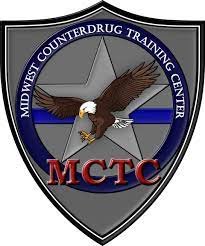
UPCOMING TRAINING EVENTS
Who Should Attend: This workshop is ideal for detectives, patrol officers, supervisors, chemists, and prosecutors.
There is no cost to attend and lunch will be provided.
Course Description: This workshop will provide an overview of the rise of opioid epidemic in the US and particularly, the rise of fentanyl. Through the use of real-life case studies, attendees will learn how to safely respond and investigate the scene of an overdose. The workshop will prepare attendees to act in an undercover role by using social media to identify and investigate suspected distributors of counterfeit pills and fentanyl powder. An overview of various federal charges related to overdoses and overdose deaths will help prepare attendees for successful prosecution.
Course Description: The Arizona HIDTA Public Health/Public Safety Initiative is bringing together drug prevention, law enforcement, and the public to address the urgent need to work with communities, the public, and law enforcement on educating communities and parents about the health and societal costs and consequences of substance abuse. The Stronger Together learning collaborative employs substance use prevention practices that are evidence-informed and results-driven. The collaborative involves making positive systematic progress; learning from theory about what works; implementing those practices in a comprehensive manner; and resolving local youth substance use problems.
Agenda items for this training include:
· Arizona HIDTA Drug Threat Assessment for 2025
· Arizona Criminal Justice Commission Arizona Youth Survey Coalition Dashboard
· Comeback Home Video and Curriculum, A sibling’s point of view
· Localized and Updated Resources and PowerPoints for Public Health and Public Safety Partners to Use in the Community
· STOP-IT Initiative, Phase 2 curriculum overview
· Guest Speaker: Arizona Attorney General Kris Mayes, what’s being done to combat the Fentanyl crisis
· Celebrating Community Partners Wins
For Additional Information Download Flyer
Registration Status: Apply for Training
Registration Closes: 02/21/2025
Course Description: This course is designed to teach Law Enforcement Officers and other first responders how to treat and manage trauma patients in a civilian tactical environment. Utilizing a mix of classroom presentation and hands-on skills training, attendees will learn how to provide life-sustaining treatments in threatening conditions. Instructors will leverage overseas and domestic military experiences in order to illustrate and convey lessons learned in hostile situations. This course requires a 16-hour (2-day) commitment from students and provides more in depth modules and hands-on skills practice than is offered in the Basic Tactical Medicine course. The second day includes evaluated scenarios that require students to practice tactics as well as life-saving treatment for casualties. Upon course completion, students will be able to identify and treat the leading causes of preventable death in a multi-phase tactical environment.
Dress Code: (NO Shorts/Flip-Flops)
To apply use the link below, which will direct you to Western Regional Counterdrug Training Center.
Prerequisite: Students must be full-time, law enforcement commissioned peace officer working for a law enforcement agency.
Course Description: Apple and Google provide 99% of the world’s mobile phone operating systems and yet very few law enforcement officers know what information these companies have much less use this data in their investigations. Critical information can be obtained even when the mobile phone is locked or not in police custody. Additionally, existing forensic tools are capable of accessing some of the data stored in the cloud which can be much quicker than waiting for a search warrant to be returned.
This training will increase Law Enforcement Officers’ understanding of the types of relevant evidence and intelligence that exist within the different platforms, how to obtain it, how to manage it, and how to use it.
This training includes:
Writing effective search warrants that capture available information such as: access logs, Internet Protocol addresses, device IDs, other phone numbers and accounts, addresses, linked social media services, browser data, email messages, deleted email messages, and installed applications.
Proper evidence preservation techniques for search warrants returns.
Financial data including methods and sources of payment, peer-to-peer payments, and other financial data.
Cloud stored data including images, videos, and documents, and associated metadata. Existing forensic tools for obtaining cloud data.
Alternatives to the near-defunct reverse location searches (AKA ‘geofence’ warrants) including appropriate application and use, understanding and testifying about the data and the technologies used to determine location, and surviving legal challenges to the search warrant and the data.
Search term search warrants-Searching users’ browsing history for specific key words and terms for significant criminal cases without other investigative leads.
Free tools for analyzing the data from Apple and Google search warrant returns.
Dress Code: Business Causal. No Uniforms/Shorts/Flip-flops.
Registration Status: Apply for Training
Registration Closes: 03/07/2025
Prerequisite: Students must be full-time, law enforcement analyst or commissioned peace officer working for a law enforcement agency.
Requirements: An agency/personal laptop with EXCEL for practical exercises.
Course Description: Unlock the full potential of Excel in this specialized training course designed specifically for law enforcement analysts and investigators. This comprehensive 2-day class, tailored for Excel users of all experience levels, will equip attendees with the tools to effectively master Excel's powerful capabilities from data cleaning and organization to advanced analytics. Participants will gain practical skills through hands-on exercises using real-world law enforcement data in order to derive meaningful insights and data-driven decision-making for their investigations and agency-related analyses.
Dress Code: Uniform or Business Casual (No Shorts - No Flip Flops)
Registration Status: Apply for Training-Waiting List Only
Registration Closes: 03/03/25
Prerequisite: Students must be employed by a government agency and must attend the full 2 weeks.
Friday, April 4th is a FULL DAY.
We kindly ask no travel to be booked on the final day, if you miss 3 hours or more you will not receive a certificate of completion.
Must be non-sworn, civilian personnel ONLY.
Course Description: This is a 2-week, (80-hour) comprehensive introduction to law enforcement intelligence analysis, with an intensive program consisting of both classroom and hands-on training. The course curriculum emphasizes the development of the student’s analytical skills, the use of computerized tools and systems, and covers a broad range of academic subjects critical to providing mission-oriented intelligence. The course is designed to provide the student with the skill, knowledge, and ability needed to assemble and present critical analytical assessments and products to investigators, prosecutors, and other agencies. Analysts will learn how to develop and use intelligence at the specialized investigative unit level to provide valued assistance in planning and directing investigative strategies. This training course addresses many of the recognized national training standards and provides the foundation for developing and enhancing analytical capabilities.
Dress Code: Business Casual (No Shorts - No Flip Flops)
Registration Status: Apply for Training- Waiting List Only
Registration Closes: 03/03/25
Prerequisite: Students must be full-time, commissioned peace officers or Criminal Analysts working for a law enforcement agency.
Course Description: This course will give you the tools to get to the Truth quicker. You will be able to laser focus your investigations and come to a quicker case resolve. You will recognize information in the words people use, that you have previously been missing! This course is also the foundation for a successful Analytical Interview; removing the guess work from the interview and recognizing if and how deception is present. Using the subject’s own words, you will be able to laser focus you interview questions, obtain more information, and more confessions. Learn the psychological and linguistic principles behind the subject’s chosen words. Taught how to obtain a “pure,” uncontaminated statement.
Students will be introduced to the principles of psycho-linguistic profiling, learned in advanced analysis. The profile is invaluable for all investigators and gives them a distinct edge during the interview.
Dress Code: Business Casual (No Shorts - No Flip Flops)
Registration Status: Apply for Training
Registration Closes: 03/24/25
Prerequisite: Students must be full-time, commissioned peace officers working for a law enforcement agency.
Course Description: This course provides classroom presentations and scenario-based training in the detection and interception of narcotics. The course will outline comprehensive investigative techniques to identify behavior and conduct of the drug violator in various concealment and transportation settings. Topics include hotels/motels; airports; commercial buses; parcel/package businesses; passenger and commercial vehicles; consensual encounters; border inspections; desert smugglers; train stations; the role of the narcotic K9; current concealment trends; intelligence leads; targeting, seizure data, and related legal issues. The course will be instructed by a team of experts in drug interdiction investigations and prosecution.
Dress Code: Business Casual (No Shorts - No Flip Flops)
Registration Status: Apply for Training
Registration Closes: 03/31/25
Prerequisite: Eligible participants include local, state, and federal civilian law enforcement employees, substance misuse prevention specialists, treatment personnel, school resource officers, US military law enforcement and Counterdrug personnel, corrections officers, and others working in the field of substance misuse.
Course Description: The Evidence Based Drug Education (EBDE) course is designed to provide law enforcement, substance misuse prevention specialists, treatment personnel, school resource officers, community trainers and National Guard Drug Demand Reduction personnel with an in-depth understanding of substance misuse. Rooted in scientific evidence, this course explores various drugs, their effects on the human body and behavior, and their broader social implications.
Topics Include:
Drug Categories
Basic Brain Process
How Specific Drugs Affect The Brain
Overview Of Specific Drugs
Synthetics
Drug Recognition (E.g., Marijuana, Meth, Heroin)
Federal Drug Scheduling
Dress Code: Uniform or Business Casual - (No Shorts/Flip Flops)
Registration Status: Apply for Training
Course Description: The C&BS course provides an introduction to virtual and cryptocurrencies and how criminals utilize them to layer proceeds from specified unlawful activities. Students will be introduced to the history of cryptocurrencies, learn how to identify suspect wallets, identify transactions visible on the blockchain, and how to implement a seizure plan. Students will get hands on experience in seizing Bitcoin by transferring funds into an agency-controlled wallet. Laptop with administrative rights recommended. Upon course completion, law enforcement and narcotics officers will be able to identify or locate cryptocurrency wallets and take control of suspect funds.
Dress Code: (NO Shorts/Flip-Flops)
To apply use the link below, which will direct you to Western Regional Counterdrug Training Center.
Course Description: This course teaches students basic techniques to geolocate where a picture or video was taken through a combination of reverse image searches and online searching. This course uses both lecture and practical exercises to teach the students. Upon course completion students will have acquired new techniques to analyze pictures and videos in order to aid their investigations.
Dress Code: (NO Shorts/Flip-Flops)
To apply use the link below, which will direct you to Western Regional Counterdrug Training Center.
Course Description: The C&BS course provides an introduction to virtual and cryptocurrencies and how criminals utilize them to layer proceeds from specified unlawful activities. Students will be introduced to the history of cryptocurrencies, learn how to identify suspect wallets, identify transactions visible on the blockchain, and how to implement a seizure plan. Students will get hands on experience in seizing Bitcoin by transferring funds into an agency-controlled wallet. Laptop with administrative rights recommended. Upon course completion, law enforcement and narcotics officers will be able to identify or locate cryptocurrency wallets and take control of suspect funds.
Dress Code: (NO Shorts/Flip-Flops)
To apply use the link below, which will direct you to Western Regional Counterdrug Training Center.
Course Description: This course teaches students basic techniques to geolocate where a picture or video was taken through a combination of reverse image searches and online searching. This course uses both lecture and practical exercises to teach the students. Upon course completion students will have acquired new techniques to analyze pictures and videos in order to aid their investigations.
Dress Code: (NO Shorts/Flip-Flops)
To apply use the link below, which will direct you to Western Regional Counterdrug Training Center.





